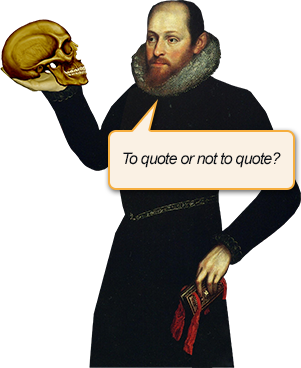Song of Solomon Quotes
Shmoop will make you a better lover...of quotes
ALL QUOTES POPULAR BROWSE BY AUTHOR BROWSE BY SOURCE BROWSE BY TOPIC BROWSE BY SUBJECTO Solomon don't leave me here
Cotton balls to choke me
O Solomon don't leave me here
Buckra's arms to yoke me
Solomon done fly, Solomon done gone
Solomon cut across the sky, Solomon gone home.
Context
Milkman, one of the main characters of Toni Morrison's Song of Solomon, is in a small Virginian town called Shalimar, where he's is searching for information about his family. While he's there, he hears children singing a song, a mix of what seem to be nonsense words and actual names and facts.
Milkman becomes totally obsessed with the song. He memorizes it and discovers that the "Solomon" and "Ryna" in the song are his great-grandparents, and the "Jake" is his grandfather.
Say what?
Yep, the lines in the quote above are sung by Ryna to her husband Solomon, and they're the same ones Milkman heard his aunt Pilate sing earlier in the novel (where "Solomon" is replaced with "Sugarman").
The quote explains Solomon's flight to Africa. Solomon and Ryna were slaves, and Solomon's escape, while miraculous, left his wife stranded with the cotton, the slave masters (Buckra is an slur for a white boss), and their twenty-one kids.
All in all, it's not a very happy children's song. Milkman's break from Hagar and final leap into Ryna's gulch mirror Solomon's legacy. Or maybe they mirrors Mr. Smith's plunge from the hospital roof, depending on how literally you take the whole "riding the air" thing.
Where you've heard it
You may have never heard this exact song (except in the book), but the nursery rhymes you're familiar with are probably just as morbid.
Pretentious Factor
If you were to drop this quote at a dinner party, would you get an in-unison "awww" or would everyone roll their eyes and never invite you back? Here it is, on a scale of 1-10.

What are you trying to convey? That the freedom of men comes at the cost of the enslavement of women? The mutual exclusivity of fatherhood and personhood in the face of oppression? Just checking.
